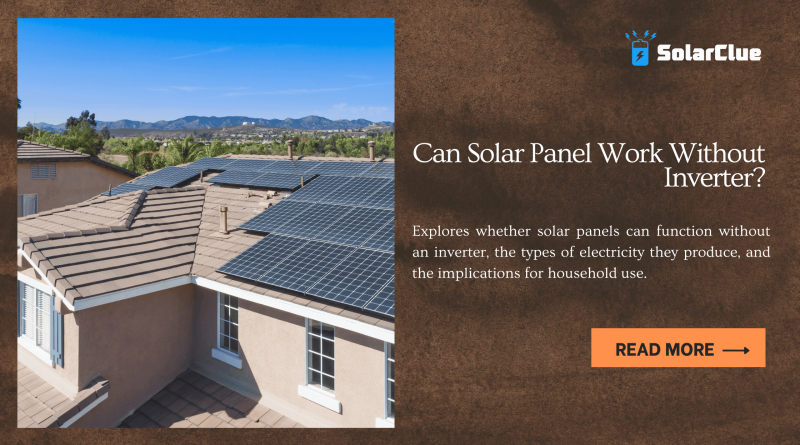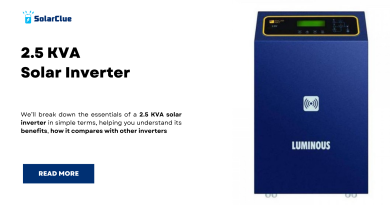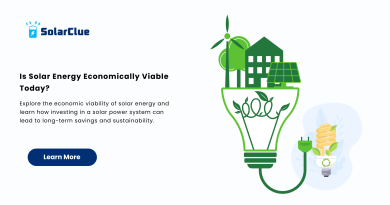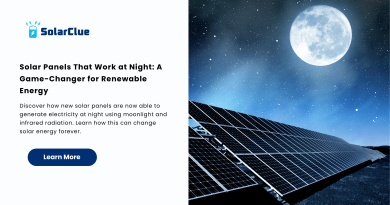Can Solar Panel Work Without Inverter?
Solar panels are a popular and sustainable way to generate electricity, but their operation usually involves inverters. This blog post explores whether solar panels can function without an inverter, the types of electricity they produce, and the implications for household use.
Table of Contents
The Importance of Inverters in Solar Power Systems
Inverters play a critical role in solar power systems by converting the direct current (DC) electricity generated by solar panels into alternating current (AC) electricity, which is used by most household appliances and fed into the electrical grid. Without inverters, the DC electricity from solar panels would not be compatible with the majority of residential and commercial electrical systems.
DC vs. AC Electricity: A Brief Overview
Direct Current (DC):
DC electricity flows in a single direction and is produced by sources such as solar panels and batteries. DC is used in many low-power applications and is the standard for most electronic devices.
Alternating Current (AC):
AC electricity periodically reverses direction and is the standard form of electricity used in homes and businesses. It is more efficient for long-distance transmission and is compatible with most household appliances.
| Feature | Direct Current (DC) | Alternating Current (AC) |
|---|---|---|
| Flow Direction | Unidirectional | Periodically reverses direction |
| Usage | Batteries, solar panels, electronic devices | Household appliances, power grids, businesses |
| Transmission | Less efficient over long distances | More efficient for long-distance transmission |
Using Solar Panels Without an Inverter for DC Devices
Solar panels can technically operate without an inverter if they are used to power DC devices directly. Applications such as solar-powered lights, fans, and certain water pumps can run on DC electricity from solar panels. This setup is feasible for low-power and off-grid applications where AC power is not required.
The Challenges of Running Household Appliances on DC Power
Most household appliances are designed to run on AC power, making it challenging to use solar panels without an inverter. Converting an entire home to DC would require significant modifications to the electrical system and appliances. Additionally, DC transmission over long distances is less efficient, leading to potential power losses and increased costs.
The Role of Battery Storage in Off-Grid Systems
In off-grid solar power systems, battery storage plays a crucial role in managing the DC electricity produced by solar panels. Batteries store excess DC electricity generated during the day for use at night or during cloudy periods. These systems often use inverters to convert stored DC electricity to AC when needed, providing a flexible and reliable power solution.
Emerging Technologies for DC Appliances
Emerging technologies are exploring the use of DC appliances to improve energy efficiency and reduce conversion losses. Innovations in DC-powered air conditioning, refrigerators, and other household devices are making it more feasible to use solar panels without inverters. However, these technologies are still in the early stages and not yet widely adopted.
DC vs. AC Electricity in Solar Power Systems
| Feature | Direct Current (DC) | Alternating Current (AC) |
|---|---|---|
| Flow Direction | Unidirectional | Periodically reverses direction |
| Common Uses | Batteries, solar panels, electronic devices | Household appliances, power grids, businesses |
| Efficiency for Long Distance | Less efficient | More efficient |
| Compatibility with Household | Limited | Standard |
| Need for Inverters | Optional for DC devices | Necessary for AC devices |
The Future of Inverterless Solar Power Systems
The future of solar power systems may see a greater integration of DC appliances and microgrids, reducing the reliance on inverters. Advances in power electronics and energy storage could make inverterless systems more viable, especially in specific applications such as electric vehicles and remote off-grid installations.
Cost-Benefit Analysis of Using or Not Using an Inverter
Using an inverter adds to the initial cost of a solar power system but provides compatibility with AC appliances and the grid. Not using an inverter can save costs in specific DC applications but may limit the system’s versatility and efficiency. A cost-benefit analysis should consider the specific needs and applications of the solar power system, including the types of devices being powered and the overall system design.
Conclusion
Here at SolarClue®, we offer a smart, practical, and “beautiful” solution. You will be answered for all the questions related to Solar.
We provide all kinds of brands that are the Best Solar panels in India.
If you are the one who is planning for the solar power system. Don’t hesitate to contact our team!
Looking forward to empowering you with solar energy, just like hundreds of our other clients!
FAQs
1. Can solar panels operate without an inverter?
Yes, solar panels can operate without an inverter if they are used to power DC devices directly. However, most household appliances require AC power, which necessitates an inverter.
2. What is the main function of an inverter in a solar power system?
The primary function of an inverter is to convert the DC electricity produced by solar panels into AC electricity, which is compatible with household appliances and the electrical grid.
3. Are there any applications where solar panels can be used without an inverter?
Yes, solar panels can be used without an inverter in applications such as solar-powered lights, fans, water pumps, and other DC-powered devices, especially in off-grid settings.
4. What are the challenges of running household appliances on DC power?
Most household appliances are designed to run on AC power, making it difficult to use them with DC power. Converting an entire home to DC would require significant modifications and could result in efficiency losses over long distances.
5. How do battery storage systems work with solar panels?
Battery storage systems store excess DC electricity generated by solar panels during the day for use at night or during cloudy periods. In off-grid systems, inverters are often used to convert the stored DC electricity to AC when needed.




